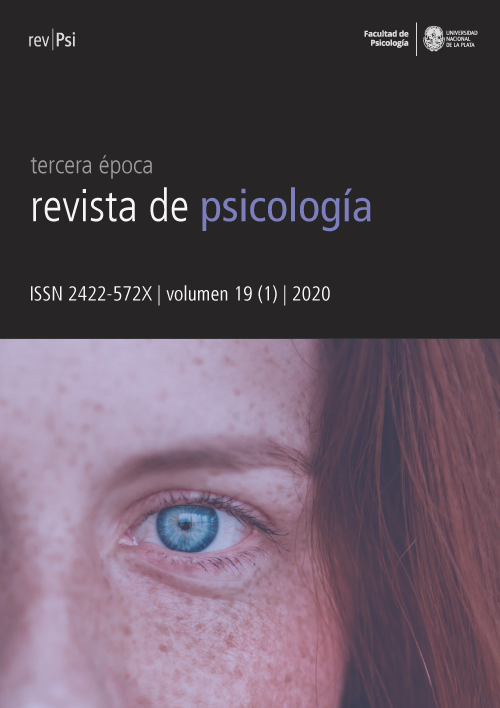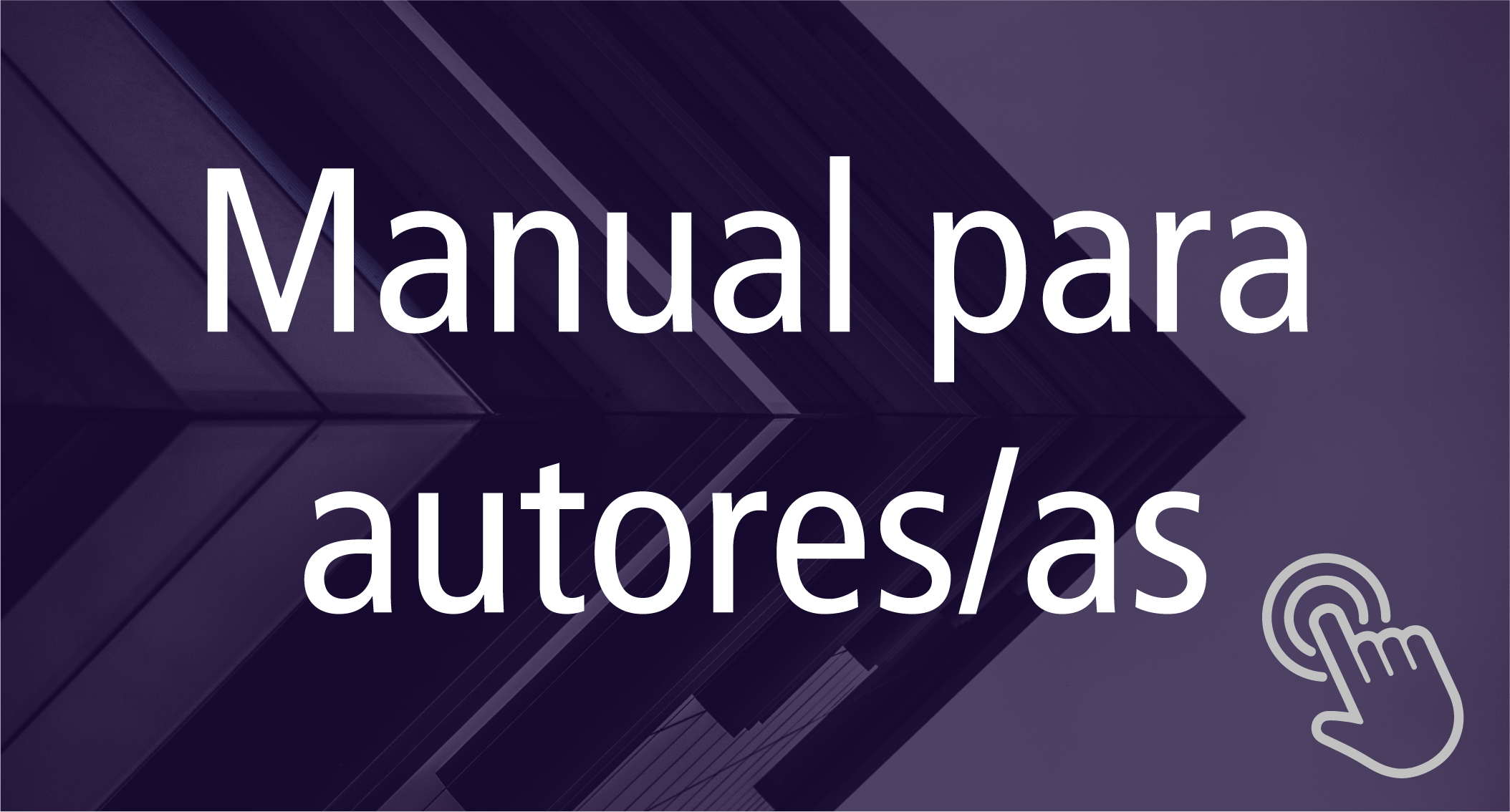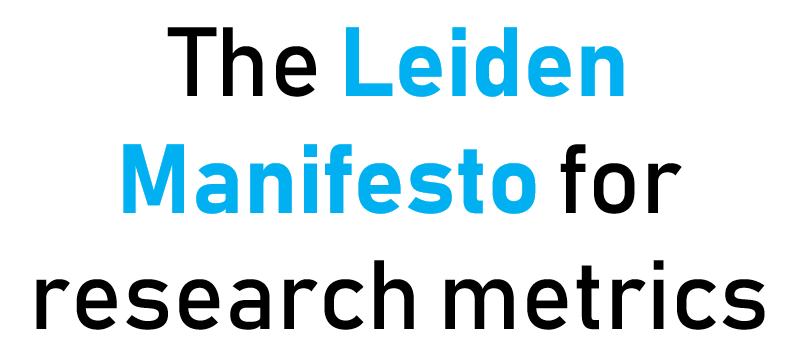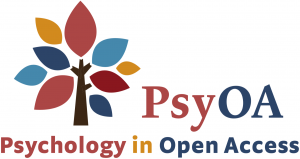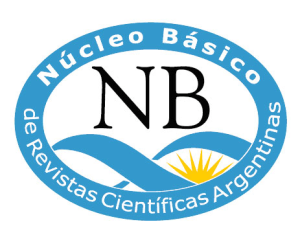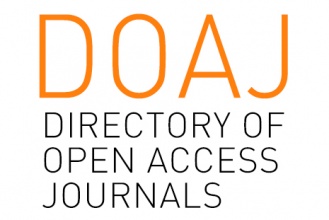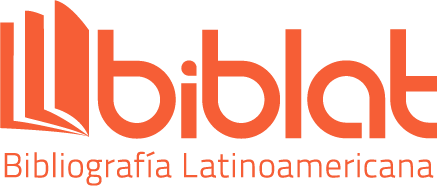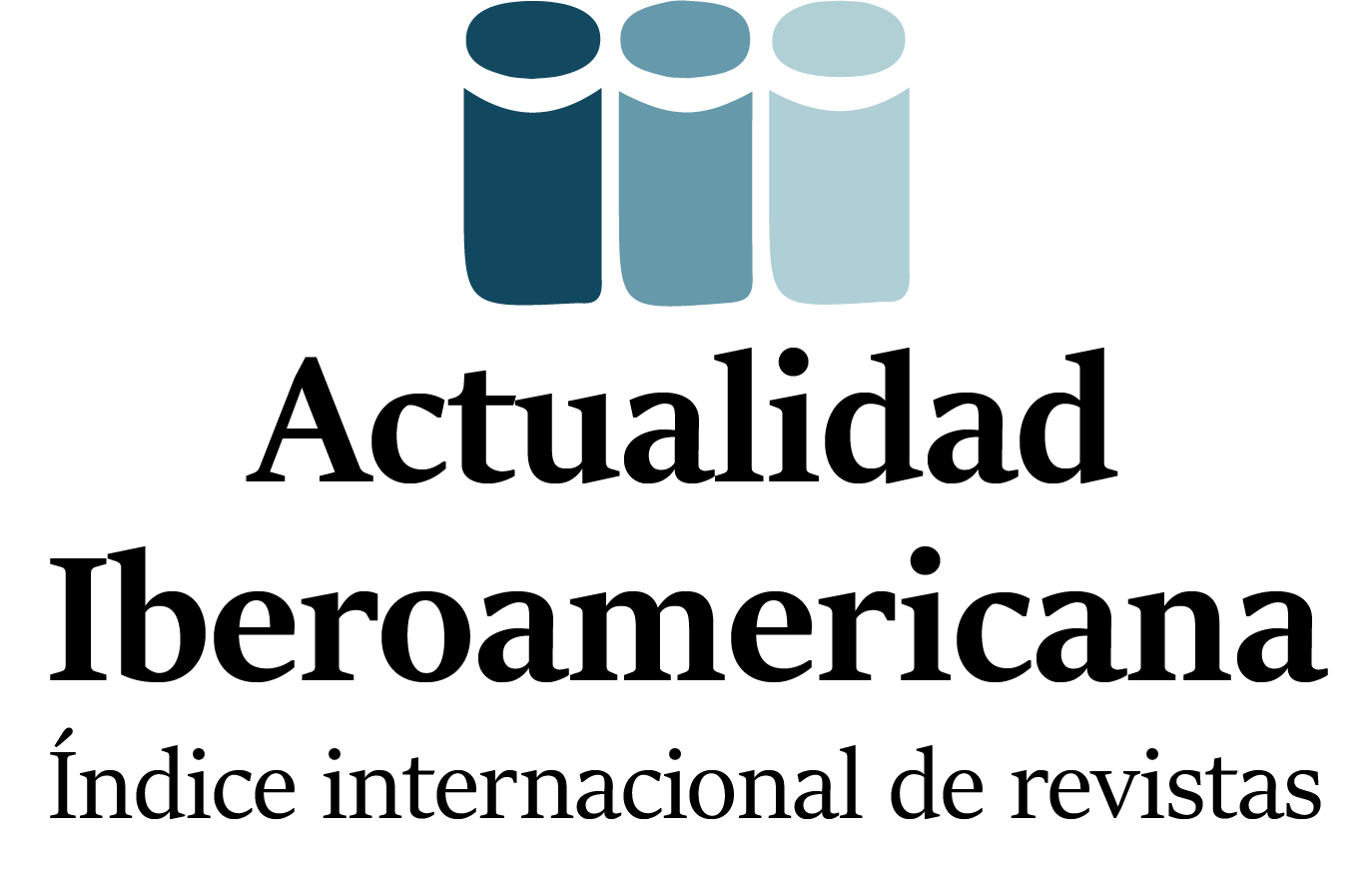Capital psicológico, pasión por el trabajo y comportamiento innovador: un estudio exploratorio con docentes santafesinos
DOI:
https://doi.org/10.24215/2422572Xe045Palabras clave:
innovación pedagógica, capital psicológico, pasión armoniosa, mediación estadísticaResumen
El comportamiento laboral innovador constituye un conjunto de acciones tendientes a la exploración, generación, socialización y realización de ideas novedosas. Sus determinantes contextuales han sido establecidos por la literatura científica. No obstante, sus antecedentes disposicionales continuan siendo objeto de investigación. El objetivo de este estudio fue analizar el efecto directo e indirecto del capital psicológico y la pasión por el trabajo sobre el comportamiento innovador. Se diseñó un estudio empírico cuantitativo transversal. Una muestra de 458 docentes de nivel primario (96.4% mujeres; MEdad= 34.67 años; Mantigüedad= 7.77 años) respondieron medidas estandarizadas de las variables. Análisis de mediación indicaron que la pasión armoniosa media parcialmente el efecto positivo del capital psicológico sobre las cuatro dimensiones del comportamiento innovador. Los resultados iluminan la importancia de desarrollar estados positivos en el trabajo como un medio de favorecer la innovación. Se señalan limitaciones del estudio realizado y líneas para la investigación futura.
Referencias
Abbas, M. y Raja, U. (2015). Impact of psychological capital on innovative performance and job stress. Canadian Journal of Administrative Sciences, 32(2), 128-138.
APA. (2017). Ethical principles of psychologists and code of conduct. APA. http://www.apa.org/ethics/code/
Ato, M., López, J. J. y Benavente, A. (2013). Un sistema de clasificación de los diseños de investigación en psicología. Anales de Psicología, 29(3), 1038-1059. https://doi.org/10.6018/analesps.29178511
Bañuelos, A., Descals, F. y Castaño, M. (2016). ¿Podemos apasionarnos por el trabajo? Una revisión de la pasión para el trabajo. Papeles del Psicólogo, 37(3), 165-169.
Carter, J. W. y Youssef‐Morgan, C. M. (2019). The positive psychology of mentoring: A longitudinal analysis of psychological capital development and performance in a formal mentoring program. Human Resource Development Quarterly, 30(3), 383-405. https://doi.org/10.1002/hrdq.21348
Cheung, G. W. y Wang, C. (2017). Current approaches for assessing convergent and discriminant validity with SEM: Issues and solutions. Academy of Management Proceedings, 2017(1), 12706. https://doi.org/10.5465/AMBPP.2017.12706abstract
CONICET. (2006). Resolución No. 2857: CONICET: Lineamientos para el comportamiento ético en las Ciencias Sociales y Humanidades. CONICET.
Curran, T., Hill, A., Appleton, P., Vallerand, R. y Standage, M. (2015). The psychology of passion: A meta-analytical review of a decade of research on intrapersonal outcomes. Motivation & Emotion, 39(5), 631-655. https://doi.org/10.1007/s11031-015-9503
De Spiegelaere, S., Van Gyes, G. y Van Hootegem, G. (2014). The concept of innovative work behaviour: Definition and orientation. Gedrag en Organisatie, 27(2), 139-156.
Dominguez Lara, S. A. (2016). Evaluación de la confiabilidad del constructo mediante el coeficiente H: Breve revisión conceptual y aplicaciones. Psychologia, 10(2), 94. https://doi.org/10.21500/19002386.2134
Gulyani, G. y Bhatnagar, J. (2017). Mediator analysis of passion for work in Indian millennials: Relationship between protean career attitude and proactive work behavior. Career Development International, 22(1), 50-69. https://doi.org/10.1108/CDI-04-2016-0057
Hayes, A. F. (2013). Methodology in the social sciences. Introduction to mediation, moderation, and conditional process analysis: A regression-based approach. Guilford Press.
Hopwood, C. J. (2007). Moderation and mediation in structural equation modeling: Applications for early intervention research. Journal of Early Intervention, 29(3), 262-272. https://doi.org/10.1177/105381510702900305
Huang, L. y Luthans, F. (2015). Toward better understanding of the learning goal orientation-creativity relationship: The role of positive psychological capital. Applied Psychology, 64(2), 444-472. https://doi.org/10.1111/apps.12028
Kaur, K. y Gupta, V. (2016). The impact of personal characteristics on innovative work behaviour: An exploration into innovation and its determinants amongst teachers. The International Journal of Indian Psychology, 3(11).
Klaeijsen, A., Vermeulen, M. y Martens, R. (2018). Teachers’ innovative behaviour: The importance of basic psychological need satisfaction, intrinsic motivation, and occupational self-efficacy. Scandinavian Journal of Educational Research, 62(5), 769-782. https://doi.org/10.1080/00313831.2017.1306803
Kok, B. E. y Fredrickson, B. L. (2013). Positive emotion: How positive emotions broaden and build. En J. J. Froh y A. C. Parks (Eds.), Activities for teaching positive psychology: A guide for instructors (pp. 61-63). American Psychological Association.
Luthans, F y Youssef-Morgan, C. M. (2017). Psychological capital: An evidence-based positive approach. Annual Review of Organizational Psychology and Organizational Behavior, 4(1), 339-366. https://doi.org/10.1146/annurev-orgpsych-032516-113324
Madrid, H. P., Diaz, M. T., Leka, S., Leiva, P. I. y Barros, E. (2018). A finer grained approach to psychological capital and work performance. Journal of Business and Psychology, 33(4), 461-477. https://doi.org/10.1007/s10869-017-9503-z
Messmann, G., Stoffers, J., Van der Heijden, B. y Mulder, R. H. (2017). Joint effects of job demands and job resources on vocational teachers’ innovative work behavior. Personnel Review, 46(8), 1948-1961. https://doi.org/10.1108/PR-03-2016-0053
Ministerio de Trabajo de la Provincia de Santa Fe. (2017). Boletín 34: Composición y evolución del empleo registrado. Ministerio de Trabajo de la Provincia de Santa Fe. https://www.santafe.gov.ar/index.php/content/view/full/93760
Montani, F., Odoardi, C. y Battistelli, A. (2014). Individual and contextual determinants of innovative work behaviour: Proactive goal generation matters. Journal of Occupational and Organizational Psychology, 87(4), 645-670. https://doi.org/10.1111/joop.12066
Oeij, P., Rus, D. y Pot, F. D. (Eds.). (2017). Workplace innovation: Theory, research and practice. Springer.
Omar, A., Salessi, S. y Urteaga, F. (2014). Diseño y validación de una nueva escala para medir capital psicológico. Liberabit, 20(2), 315-323.
Podsakoff, P. M., MacKenzie, S. B. y Podsakoff, N. P. (2012). Sources of method bias in social science research and recommendations on how to control it. Annual Review of Psychology, 63(1), 539-569. https://doi.org/10.1146/annurev-psych-120710-100452
Salessi, S. (en prensa). Comportamiento innovador en el trabajo: Análisis factorial confirmatorio de la escala de Janssen. Interdisciplinaria. Revista de Psicología y Ciencias Afines.
Salessi, S. (en prensa). Innovative work behaviour: Development and validation of a scale for teachers. Revista Interamericana de Psicología.
Salessi, S. y Omar, A. (en prensa). Pasión por el trabajo: Un estudio instrumental con trabajadores argentinos. Psykhe.
Salessi, S. y Omar, A. (2017). Comportamientos proactivos en el trabajo: Una puesta al día. Revista Argentina de Ciencias del Comportamiento, 9(3), 82-103.
Salessi, S., Omar, A. y Vaamonde, J. D. (2017). Conceptual considerations of work passion. Ciencias Psicológicas, 11(2), 165-178.
Sameer, Y. M. (2018). Innovative behavior and psychological capital: Does positivity make any difference? Journal of Economics and Management, 32, 75-101. https://doi.org/10.22367/jem.2018.32.06
Sun, Y. y Huang, J. (2019). Psychological capital and innovative behavior: Mediating effect of psychological safety. Social Behavior and Personality: An International Journal, 47(9), 1-7. https://doi.org/10.2224/sbp.8204
Tabachnick, B. y Fidell, L. S. (2013). Using multivariate statistics. Pearson.
Taştan, S. (2016). Psychological capital: A positive psychological resource and its relationship with creative performance behavior. Anadolu. University Journal of Social Sciences, 16(2), 101-118. https://doi.org/10.18037/ausbd.389199
Thurlings, M., Evers, A. T. y Vermeulen, M. (2015). Toward a model of explaining teachers’ innovative behavior: A literature review. Review of Educational Research, 85(3), 430-471. https://doi.org/10.3102/0034654314557949
UNESCO. (2016). Innovación educativa. Organización de las Naciones Unidas para la Educación, la Ciencias y la Cultura.
Vallerand, R. (2015). The psychology of passion. A dualistic model. Oxford University Press.
Vu, P., Fredrickson, S. y Moore, C. (Eds.). (2017). Handbook of research on innovative pedagogies and technologies for online learning in higher education. IGI Global. https://doi.org/10.4018/978-1-5225-1851-8
Wang, X.-H. F., Fang, Y., Qureshi, I. y Janssen, O. (2015). Understanding employee innovative behavior: Integrating the social network and leader-member exchange perspectives. Journal of Organizational Behavior, 36(3), 403-420. https://doi.org/10.1002/job.1994
Descargas
Publicado
Número
Sección
Licencia
![]()
Los autores/as que publiquen en esta revista aceptan las siguientes condiciones:
- Los autores/as conservan los derechos de autor y ceden a la revista el derecho de la primera publicación, con el trabajo registrado con la licencia de atribución de Creative Commons, que permite a terceros utilizar lo publicado siempre que mencionen la autoría del trabajo y a la primera publicación en esta revista.
- Los autores/as pueden realizar otros acuerdos contractuales independientes y adicionales para la distribución no exclusiva de la versión del artículo publicado en esta revista (p. ej., incluirlo en un repositorio institucional o publicarlo en un libro) siempre que indiquen claramente que el trabajo se publicó por primera vez en esta revista.
- Se permite y recomienda a los autores/as a publicar su trabajo en Internet (por ejemplo en páginas institucionales o personales) antes y durante el proceso de revisión y publicación, ya que puede conducir a intercambios productivos y a una mayor y más rápida difusión del trabajo publicado (veaThe Effect of Open Access).

